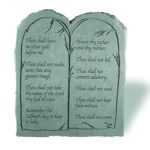HAVE A REASON AND/OR PURPOSE FOR READING
1. Read with a purpose; have an objective in mind.
Decide why you are reading the Word that day or time period. The Bible says that people “perish” for a lack of vision. When you choose a topic, issue, concern, or question to consider as you read and study, you will garner more from the Word. Some people read daily, because they enjoy just reading the Word. Some people read regularly, as part of a planned program, such as to read the entire Bible from beginning to end. Others find verses, passages, and even chapters to memorize. But, the Bible itself gives us one more reason to explore our Bibles. 2 Timothy 2:15 (NASB) – Be diligent to present yourself approved to God as a workman who does not need to be ashamed, accurately handling the word of truth.
Diligence involves a thorough attentiveness, not only by reading, but by challenging what we read. The Word of God can stand up to any “testing” on our part. As a matter of fact, it instructs us to test it (Malachi 3:10; 1 John 4:1). If we test the Word of God, and find that it works as it teaches it will, we will better “handle” the Word (not use the Bible in wrong and harmful ways). As well, we will feel confident when we tell people that God will or will not do this or that, without worrying that it will not work.
2. Follow the thought as you continue.
Once you have decided your purpose, goal, or objective for reading and/or studying the Word, stick to the subject to the end. There are some things to keep in mind when reading and studying the Bible.
• Are there other verses, passages, chapters, or parts of the Bible which will agree with what you are reading, as well as, is there something in the Bible which might argue with what you are reading? For example, the two verses above (Malachi 3:10; 1 John 4:1) clearly show that we are to test God, or at least, test something to see if it is of God. On the other hand, Matthew 4:7; Luke 4:12; and Acts 5:9, seem to say just the opposite.
• Are there other verses, passages, chapters, or parts of the Bible which may better clarify the lesson or point of the passage you are reading or studying? For example, James 2:14-26 speaks of faith, and how it must be demonstrated. If you read Hebrews 11 (the whole chapter), the lesson will be emphasized, expanded upon, and better explained. This will help the reader to better understand something, which he or she may have decided by reading James alone, that they already understood.
3. Don’t get sidetracked
A “rabbit trail” in research is something that catches your attention and distracts you from the point at hand. For instance, you may be reading about Balaam and his talking donkey, and get distracted by the angel who was about to kill Balaam, and start reading up on angels. By the time you put down your Bible, you will have forgotten poor Balaam and will not have learned the lesson of his experience with the talking donkey. If you allow yourself to keep being distracted, you will learn bad reading habits which will work against you learning the Word of God, and its teachings, in a beneficial manner.
CHECK ALL REFERENCES
To begin with, references are notations in your Bible indicated by numbers or letters (usually small ones) next to, before, or in some cases, after, a verse, word in a verse, passage, chapter heading, and along the margins of many Bibles. These notations tell you that there is another verse or number of verses, which apply to the topic at hand.
For example, James 2:16 (NASB) says, “and one of you says to them, ‘aGo in peace, 1be warmed and be filled,’ and yet you do not give them what is necessary for their body, what use is that?” The little “a” before “Go” in the verse refers to 1st John 3:17, which says, in the NASB, “But whoever has the world’s goods, and sees his brother in need and closes his heart against him, how does the love of God abide in him?” This reference reinforces the idea that charity is more than just feeling good about people, that actions must follow the sentiment.
The little “1”before the word “be” refers to a clarification of the point by emphasizing that the meaning here is “or warm yourselves and fill yourselves.” The idea is for the reader to understand that words, regardless of how nice they may be, are empty without action to back them up. References are important for several reasons.
1. The references will show you if you are on the right track.
Often a reader will assume that they understand the point made by the verse or verses, just because they can read English well enough. References and notations could end up demonstrating that the reader is off base and needs to reconsider his or her opinion as to what they believe the Bible means in the part they are reading. On the other hand, as you check out the references, you may find that your understanding is confirmed, and that you are on point.
2. They will also help to clarify the message or lesson.
Sometimes, the reference will direct the reader to another location in the Bible where a verse, passage, or story, is found which, when you finish reading it, will help you to better understand the concept of the previous reading. For example, Proverbs 3:5 tells the reader to, “trust the Lord with all your heart, and not to lean on you own understanding.” A reference point, or notation could be listed here directing the reader to 2nd Kings (chapter 4) where a widow was challenged to do something that seems impossible to resolve a serious problem in her life. If she trusted in her “own understanding” she would have missed out on the solution from God. As you can see, the redirection from the probable notation or reference led the reader to a second source which supported the first, and even clarified the understanding.
3. Use additional resources, such as the following examples:
A. Vine’s Complete Expository Dictionary of Old and New Testament Word
B. Easton’s Bible Dictionary.
C. Strong’s Concordance with Hebrew and Greek Lexicon
D. Hebrew-Greek dictionary.
E. A Bible Encyclopedia with Bible Study Tools.
FOLLOW BASIC INTERPRETATION RULES
1. Bible interprets Bible – this means that the main source for deciding the correct interpretation is the Bible itself. If you follow the instructions found in this handout, you will be following this rule.
2. Bible trumps personal experience and worldview – Many persons make Bible interpretation decisions based on their personal life experiences primarily. To them if this or that happened in their lives, then the Bible must mean this or that. God does not teach us things which necessarily will agree with our personal experiences. In fact, often what the Scriptures tell us is true, may seem to disagree with our experiences. We must always decide that what the Bible teaches is true, and that what we experienced was just that, an experience.
3. Be cautious regarding version differences – there are many versions of the Bible. Some have wide appeal, while others are shunned by many. Some are designed for serious Bible reading and study, while other are like newspaper editions of the Word (easy to read). Depending on how serious you are going to be about studying your Bible, you will find that there are many options. You should pick a version which will be comfortable to you personally.
If you are not sure, ask the pastor which version he has, and why he chose that particular version. Go online to a site such as BibleGateway.com, and browse their many versions and find one that you will feel comfortable reading and understanding. If you decide you like one, then go to a Christian book store and check out the version in person. There may different types of that version. For example, the New American Standard Bible has a regular reading Bible, a Bible designed for serious study, a Women’s Bible, and so forth.
4. Biblical time period application trumps modern application. Many persons who have trouble with correct interpretation of the Bible do so because they interpret the Bible using a 21st Century perspective. They seem to think the Bible book writers (such as Paul, Jeremiah, Moses and so forth) had modern concepts in mind when they wrote their books. When you take into consideration that the writers were impacted by the circumstances surrounding their lives, such as politics, the weather, personal fears and doubts, expressions of faith by those around them, and so forth, you will have a better idea of what the writers meant when they said what they said.
As well, their customs, culture, languages, and more, of the writers, had a real impact on the examples they used. For example, you will find many references to gardening, and farming, because they had an agrarian society (or agricultural society), which is any society whose economy is based on producing and maintaining crops and farmland. So, many of the examples used by the writers had to do with the land and its harvest.
5. When in doubt, ask for help and counsel from a more mature Christian.
Probably the handiest resource is a more mature Christian. Sitting down with a mature believer will allow you the ability to bounce ideas off someone who can respond immediately. Reading and studying many of the resources mentioned in this handout will still not provide you the ability to question the source and get a response, but speaking with a person allows for a back and forth conversation. On the other hand, this will still be the understanding and interpretation of that person. Even if you have a complete trust in the individual, you should always compare their perspectives with the Bible.
ONE LAST POINT
You are responsible for your own understanding and interpretation of the Word. No matter what your resources tell you, or what another person’s opinion is, or what seems to be the truth, you are responsible for studying your own Bible, and presenting “yourself approved to God as a workman who does not need to be ashamed, accurately handling the word of truth.”






